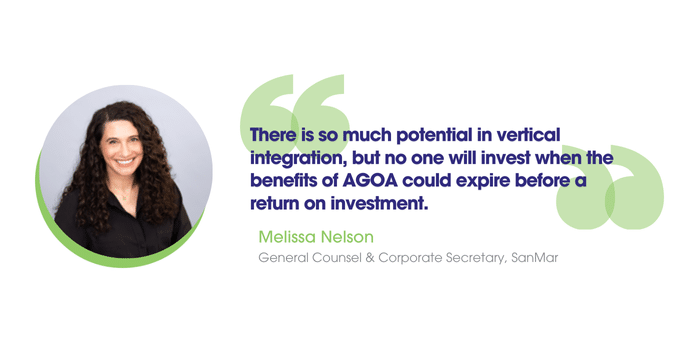On Wednesday, Melissa Nelson, general counsel and corporate secretary for SanMar – the No. 1 supplier according to the 2024 PPAI 100 – testified in front of the United States Senate Committee on Finance in support of the African Growth and Opportunity Act (AGOA).
- In her testimony, Nelson discussed the way AGOA plays a critical role in driving economic growth in the apparel industry as well as the ways it creates jobs and decreases poverty in Africa.
- SanMar has a continued presence in Africa through its factory partnerships and programs. Starting in 2023, it partnered with distributor partners to create internships in Tanzania.
AGOA is a U.S. trade program that provides duty-free policy to goods of designated African countries.
To view the video, click here (Nelson’s testimony begins at the 43-minute mark of the video).
Facts and perspectives on the subject that Nelson presented to the Senate include:
- SanMar first began sourcing apparel from sub-Saharan Africa in 2009.
- Through apparel production in five AGOA countries (Ethiopia, Kenya, Tanzania, Madagascar and Ghana), SanMar provides jobs to more than 9,000 Africans.
- Of the workers manufacturing products for SanMar in these countries, more than 70% of them are women.
- In order to move production away from China, sub-Saharan Africa provides a viable sourcing base, but this is dependent on the long-term renewal of AGOA.

Currently, AGOA is set to expire in 2025 while a proposed bill would extend it by 16 years with an expiration date of 2041.
“Many potential investments in AGOA countries are on hold because the program is close to expiration,” Nelson told the Senate. “It’s a common discussion among apparel manufacturers who source from AGOA countries. There is so much potential in vertical integration, but no one will invest when the benefits of AGOA could expire before a return on investment.”


